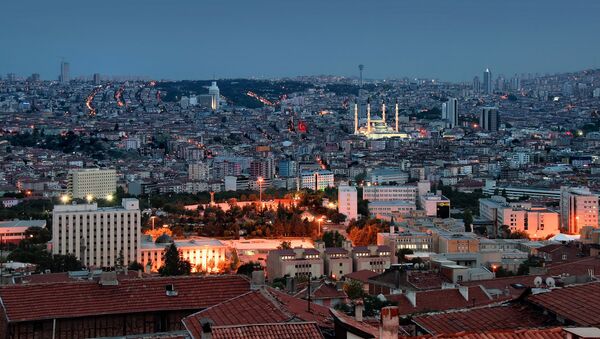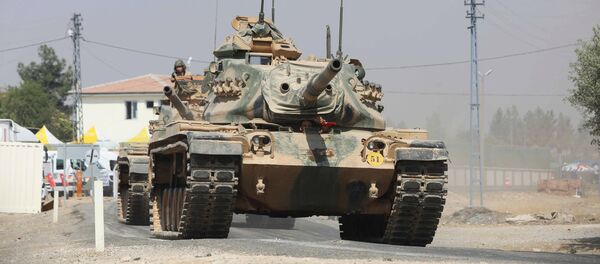"Both Damascus and Turkey understand that under current conditions they need each other and have shared interests," Orhan, an expert on the Middle East at the Ankara-based Center for Middle Eastern Strategic Studies (ORSAM) said. "This has become particularly apparent in recent months."
Ankara has drastically changed its foreign policy in recent months in a bid to strengthen its security. Turkey has been rocked by terrorist attacks that the authorities attribute either to Daesh, the terrorist group that still controls large parts of Iraq and Syria, or the Kurdistan Workers' Party (PKK).
This is why Turkish authorities have changed their stance on Assad, saying that he does not have to resign to kick start the peace process. It is a major departure from Turkey's foreign policy on Syria for the past five years.
Both countries have shared interests, Orhan noted, citing the Kurds and Syria's territorial integrity as prime examples.
"Despite the fact that the Syrian government supported the Kurds at first, they have gradually turned into a 'headache' for Damascus and pose a threat to it," he said.
In mid-August, government forces and the Kurds clashed in the Syrian city of Hasakah, with Kurdish fighters attempting to take the entire city under control. The unprecedented standoff ended with both sides agreeing to a ceasefire that has held since.
In addition, Ankara and Damascus want to uphold Syria's territorial integrity, a stance shared by Russia and Iran.
Furthermore, "both Turkey and Syria are concerned that an autonomous region under the influence of the US will be created in northern Syria. In this respect, Turkey and Syria could promote tactical cooperation," the analyst said. "This does not mean that the leaders of both countries will resolve the crisis in bilateral relations and will pose for photos, shaking each other's hands."
Oytun Orhan also said that "working with Russia and Iran on the Syrian issue is a priority for Turkey at the moment," the analyst said, calling them "Assad's main backers." By promoting cooperation with Moscow and Tehran, "Ankara, albeit indirectly, has accepted the current Syrian leadership as a stakeholder in the peace process."




